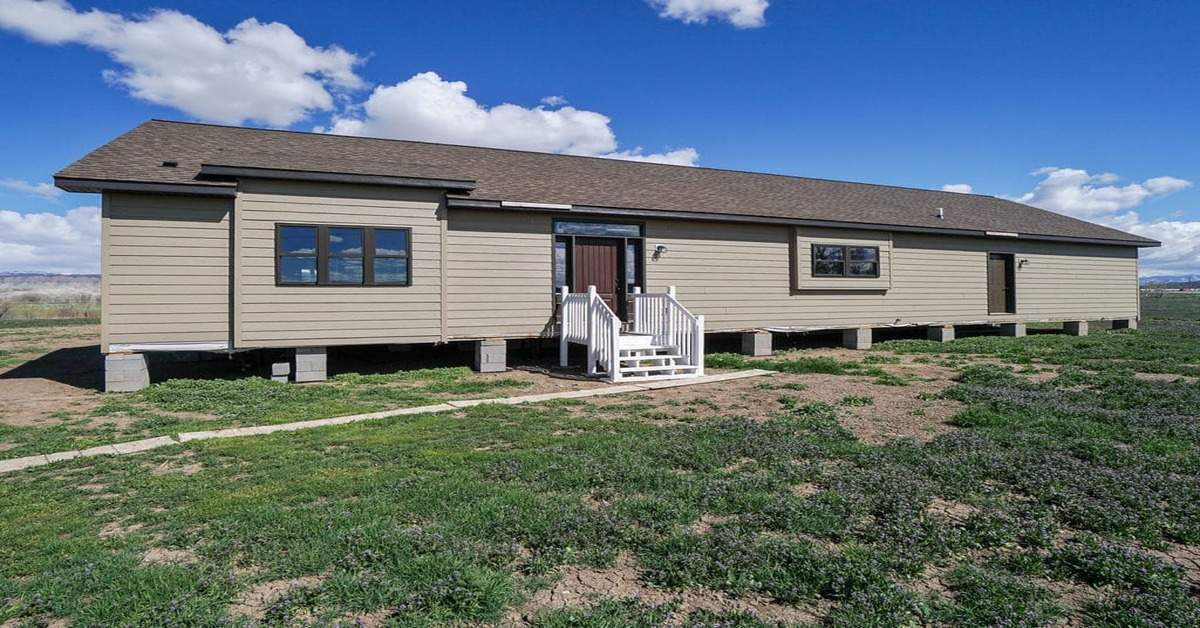Modular homes represent a groundbreaking innovation in the realm of residential construction. These homes are meticulously crafted within the controlled confines of a cutting-edge factory environment before being seamlessly transported to their designated construction sites. Their efficient assembly and the myriad benefits they bring to homeowners are what sets them apart.
Embracing the Future of Housing
In an era where time is of the essence, and cost considerations weigh heavily, modular homes offer a solution that checks all the boxes. The advent of modular construction has revolutionized the way we approach building our dream homes. Unlike traditional site-built houses, modular homes are conceived and meticulously pieced together in a factory setting under the vigilant eyes of skilled artisans.
Streamlined Efficiency and Cost Savings
One of the foremost advantages of modular homes lies in their accelerated construction timeline. Modular construction slashes the wait time by 35 percent or more compared to the often lengthy periods required for conventional site-built homes. This means you’ll settle into your new abode faster, savoring the joys of homeownership without unnecessary delays.
But the perks don’t stop there. The efficiency of modular construction also leads to significant cost savings. The reduced construction time reduces the need for interim construction financing, helping you keep more money in your pocket. Furthermore, modular home manufacturers, like the industry-leading ones we’ll delve into shortly, harness economies of scale to secure top-quality building materials at lower costs, passing these savings on to you.
The Role of Leading Manufacturers
Industry-leading manufacturers committed to delivering excellence in every modular home they produce are at the heart of this modern housing evolution. With over six decades of experience, their dedication to precision and quality craftsmanship is evident in every module, nail, and carpet fiber. Moreover, their homes are subjected to rigorous inspections, ensuring compliance with stringent state and local building codes.
In the following sections, we will delve deeper into the world of modular homes, exploring what is a modular home, their construction process, customization options, and the various benefits they offer. Let’s embark on a journey that unveils the limitless potential of modular living.
Explore the world of modular homes and take the first step towards owning your dream home. Our team at Baca Grande System Built, LLC is dedicated to delivering excellence in every modular home we produce, and we have a commitment to precision and quality craftsmanship.
Contact Details: Baca Grande System Built, LLC 3655 Mountain View Blvd. Angel Fire, NM 87710 Mailing Address: PO Box 401585 Las Vegas, NV 89140 Phone: 702-376-7068
Embrace the future of housing with Baca Grande System Built, LLC. Contact us today, and let’s embark on a journey that unveils the limitless potential of modular living. Your dream home is just a call away!
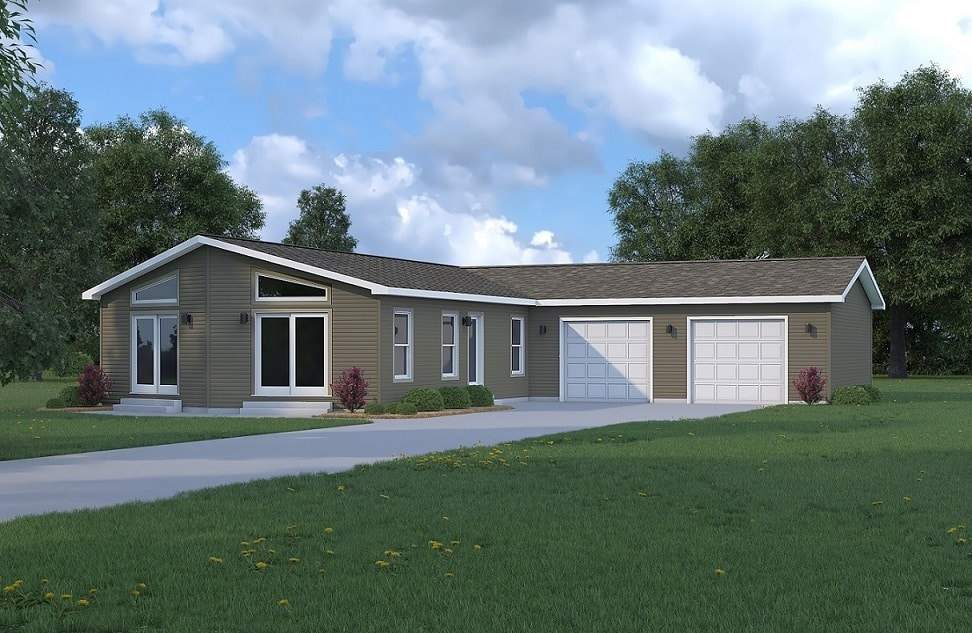
What Is A Modular Homes?
Modular homes, at their core, represent a remarkable departure from traditional housing construction practices. These are not your typical site-built houses; they are precision-engineered residences created in a controlled and meticulously monitored factory environment. What sets them apart is the ingenious way they are designed and constructed.
The Modular Construction Process Unveiled:
The journey of a modular home begins within the walls of a state-of-the-art factory. Here, skilled craftsmen and craftswomen orchestrate the construction process with precision. The modular house is meticulously divided into sections or modules, each representing a crucial puzzle piece. These modules are expertly crafted, with meticulous attention paid to every detail, from the framing to the finishing touches.
Once these modules are complete, they embark on a unique journey to their final destination—the construction site. Unlike traditional houses constructed on-site over several months, modular homes arrive in these prefabricated sections. Here, they are skillfully assembled on permanent foundations by professional installers, much like building a puzzle. This streamlined process, which takes mere days to complete, starkly contrasts the extended timelines associated with conventional construction.
Distinguishing Modular Homes from the Rest:
It’s essential to differentiate modular homes from their distant relatives, mobile homes, and manufactured homes. While modular homes share the characteristic of being built off-site, they diverge significantly in key aspects.
- Modular Homes vs. Mobile Homes: Unlike mobile homes, which are designed to be, as the name suggests, mobile, modular homes are firmly rooted in their permanent foundations. Mobile homes adhere to less stringent building codes, often categorized under the HUD code, and depreciate like vehicles. Modular homes, conversely, comply with the same rigorous building codes as traditional site-built homes, making them a more robust and enduring housing option.
- Modular Homes vs. Manufactured Homes: Modular homes are distinct from manufactured homes. Manufactured homes are constructed in factories and subject to the HUD code, similar to mobile homes. In contrast, modular homes follow local, state, and regional building codes applicable to traditional site-built houses, ensuring they meet the highest quality and safety standards.
Modular homes offer the best of both worlds—an efficient and precise construction process that complies with the same standards and regulations as conventional site-built homes. In the following sections, we will delve deeper into the advantages, customization options, and benefits that modular homes bring to homeowners.
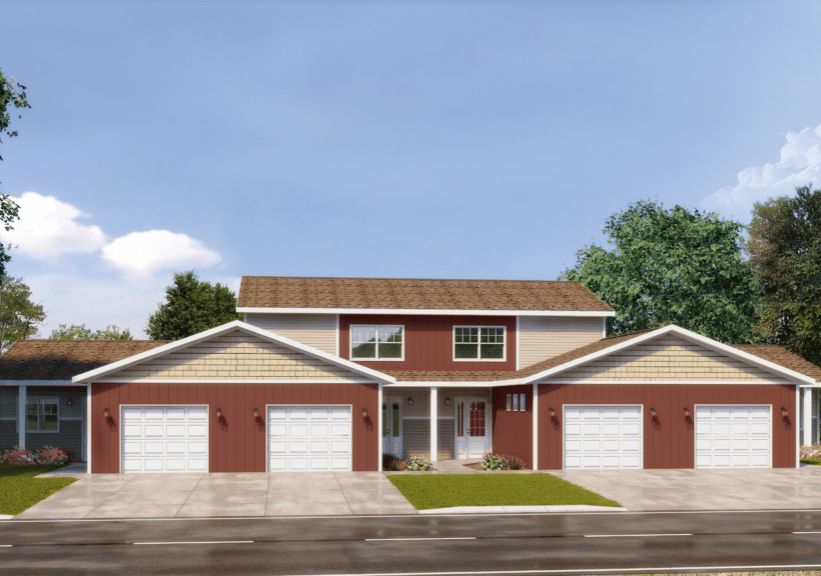
History of Modular Building Practices
Pioneering the Concept (1624): The roots of modular building practices can be traced back to 1624. One of the initial instances of prefabrication occurred at Cape Ann, where a structure was partially prefabricated and then disassembled and moved—early evidence of the advantages of modular construction.
Innovation During Wartime (1855): Florence Nightingale’s letter to The Times spurred innovative thinking during the Crimean War. Isambard Kingdom Brunel, a visionary engineer, was commissioned to design a modular hospital known as the Renkioi Hospital. This revolutionary hospital, which accommodated up to 1,000 patients, featured groundbreaking advancements in sanitation, ventilation, and even a flushing toilet—an early testament to the benefits of modular design.
The Birth of Kit Homes (1875): The concept of modular construction gained further momentum in 1875 when John Alexander Brodie, a city engineer in Liverpool, pioneered the world’s first prefabricated, pre-cast paneled apartment blocks. This marked a significant shift towards standardization and efficiency in building practices.
The Gold Rush and Mail-Order Homes (1908): The United States witnessed a surge in prefabricated homes during the Gold Rush era. Kits were made available to Californian prospectors, enabling them to construct accommodations swiftly. In 1908, homes were even offered in kit form via mail order—a precursor to the modern modular home. This marked the dawn of the mass production of houses and laid the foundation for today’s modular construction methods.
A Sustainable and Customizable Future (Today): In the contemporary era, modular home manufacturers have harnessed the essence of these historical innovations. They’ve amalgamated modern design, sustainable practices, and eco-friendly materials into their production processes. Modular homes can now be tailored to specific locations and climates, offering unparalleled flexibility and desirability for homeowners.
Today’s modular homes stand as a testament to the evolution of construction practices—a fusion of historical insights and cutting-edge technology. With a focus on sustainability, customization, and cost-efficiency, modular homes represent the pinnacle of modern housing solutions.
In the subsequent sections, we will delve deeper into the advantages, customization options, and value that modular homes bring to homeowners in the contemporary housing landscape.
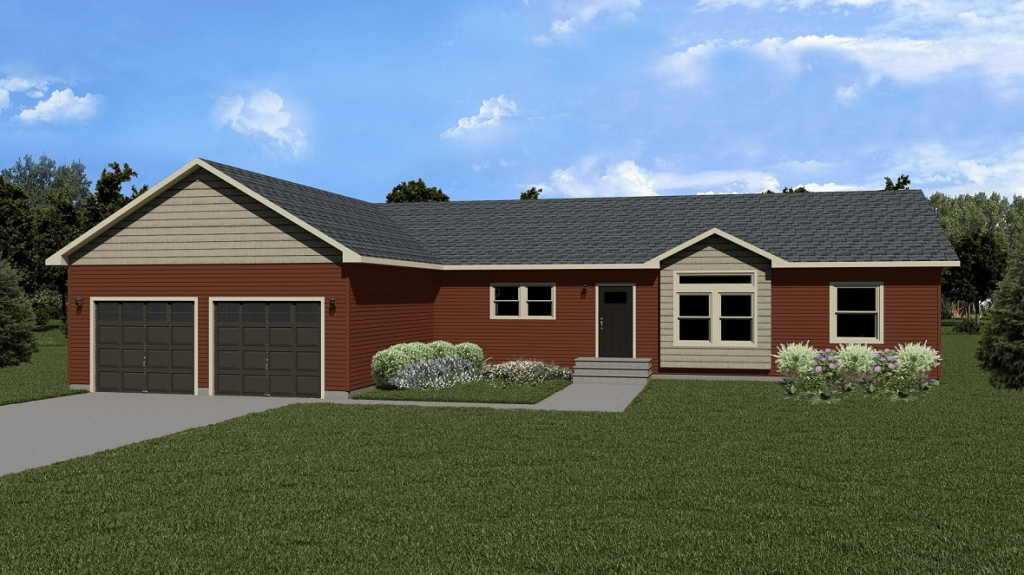
Modular Homes vs. Site-Built Homes
Construction Process: Modular Homes: Modular homes are meticulously crafted in a controlled factory environment. Skilled craftsmen and craftswomen construct each module precisely, ensuring that every detail meets exacting standards. This controlled setting minimizes errors and waste, resulting in a more efficient and cost-effective construction process.
Site-Built Homes: Site-built homes, in contrast, are constructed on the location where they will stand permanently. Building materials are delivered to the job site, where various subcontracted trades work on the construction. The process is susceptible to weather conditions and relies on many workers with varying skill levels.
Customizability: Modular Homes: Modular homes offer a surprising degree of customizability. Homebuyers can choose from various floor plans, architectural options, exterior elevations, and interior designs. Layouts can be further customized by adding living space, bedrooms, and amenities. Many modular home manufacturers provide in-house engineering services, simplifying the customization process.
Site-Built Homes: Site-built homes often begin with sample plans provided by builders, limiting customization options. While some customization is possible, it may come with a premium cost and involve architects and additional time.
Timeline: Modular Homes: One of the most significant advantages of modular homes is the reduced construction time. Builders work on a predetermined schedule, giving homeowners estimated production and delivery timelines. Site preparations, such as excavation and foundation work, can proceed while the home is being built. The process typically ranges from 60 to 120 days, with minimal weather-related delays due to the climate-controlled factory setting.
Site-Built Homes: Site-built homes typically require a longer construction timeframe, ranging from 6 months to a year. Delays are more common, often caused by weather conditions and the coordination of subcontractors.
Curb Appeal: Modular Homes: Modular homes are good in curb appeal. With Computer Assisted Design (CAD) technology, homeowners can achieve various roof lines, dormers, and window configurations, adding architectural style to their homes. It is nearly impossible to distinguish a well-designed modular home from a site-built one after completion.
Site-Built Homes: Achieving specific architectural details and curb appeal can be more painstaking in site-built homes, often requiring the involvement of architects and additional costs.
Cost: Modular Homes: Modular homes are renowned for their cost-efficiency. The construction process is streamlined and efficient, reducing labor costs. Additionally, shorter construction times mean lower interest payments on construction loans. Modular homes are often competitively priced and more affordable than site-built homes.
Site-Built Homes: Site-built homes often follow a cost-plus pricing model, which can result in rapidly escalating costs, especially if construction encounters delays or complications.
Adherence to Building Codes: Modular Homes: Modular homes are constructed to adhere to the same local, state, and national building codes and regulations as site-built homes. They meet precise standards, ensuring safety and quality.
Site-Built Homes: Site-built homes also adhere to the same building codes, but compliance and quality may vary depending on the builder and the quality of subcontractors.
Modular homes offer a streamlined construction process, high customizability, shorter timelines, excellent curb appeal, and potential cost savings while adhering to strict building codes and regulations—making them a compelling option for homebuyers seeking efficiency and value.
Modular homes offer many advantages that make them an attractive choice for homebuyers. Here are some key benefits:
Cost-Effectiveness: Modular homes are a cost-effective housing solution. Their construction process involves mass production, allowing manufacturers to purchase building supplies in bulk. This efficiency translates to lower construction costs. Moreover, modular homes typically come with a fixed cost for the home structure, reducing the risk of budget overruns. Shorter construction times also mean less spending on interim construction financing.
Environmental Responsibility: Modular homes are inherently environmentally responsible. The controlled factory construction process produces less material waste than traditional on-site construction. Additionally, fewer materials shipments are required since modules are transported to the final location once they leave the factory. The result is a reduction in transportation-related emissions and a smaller environmental footprint. Furthermore, modular homes are designed to be highly energy-efficient, helping homeowners reduce their carbon footprint and energy bills.
Durability: Modular builders use some of the most long-lasting materials available in construction. These materials are chosen for their durability and ability to withstand the test of time. When you invest in a modular home, you’re investing in a structure built to last, offering peace of mind and long-term value.
Attractiveness and Customizability: Modular homes are practical and aesthetically pleasing. In-house designers skilled in modular design software can offer a wide range of customizations and specifications for your home. Whether you desire a modern, sleek, classic, cozy, spacious, simple, or dramatic design, there is a modular home that fits your vision. Extensive exterior and interior customization options allow you to create a home that reflects your unique style.
Investment Potential: Owning a modular home is an excellent investment. These homes appreciate over time, just like traditional site-built homes. Whether you plan to live in your modular home long-term or sell it in the future, you can expect a solid return on your investment. The affordability and quality of modular homes make them appealing to a wide range of buyers.
Energy Efficiency: Modular homes are known for their energy efficiency. The sealed construction process minimizes gaps, ensures tight seams, and reduces heating and cooling costs. Since modules are not exposed to the elements during assembly, they maintain their integrity and insulation properties. This translates to lower energy bills for homeowners and a reduced environmental impact.
Modular homes offer a combination of cost-effectiveness, eco-friendliness, durability, aesthetic appeal, and investment potential. Their energy-efficient design and construction process makes them a wise choice for those seeking an environmentally responsible and budget-friendly housing option.
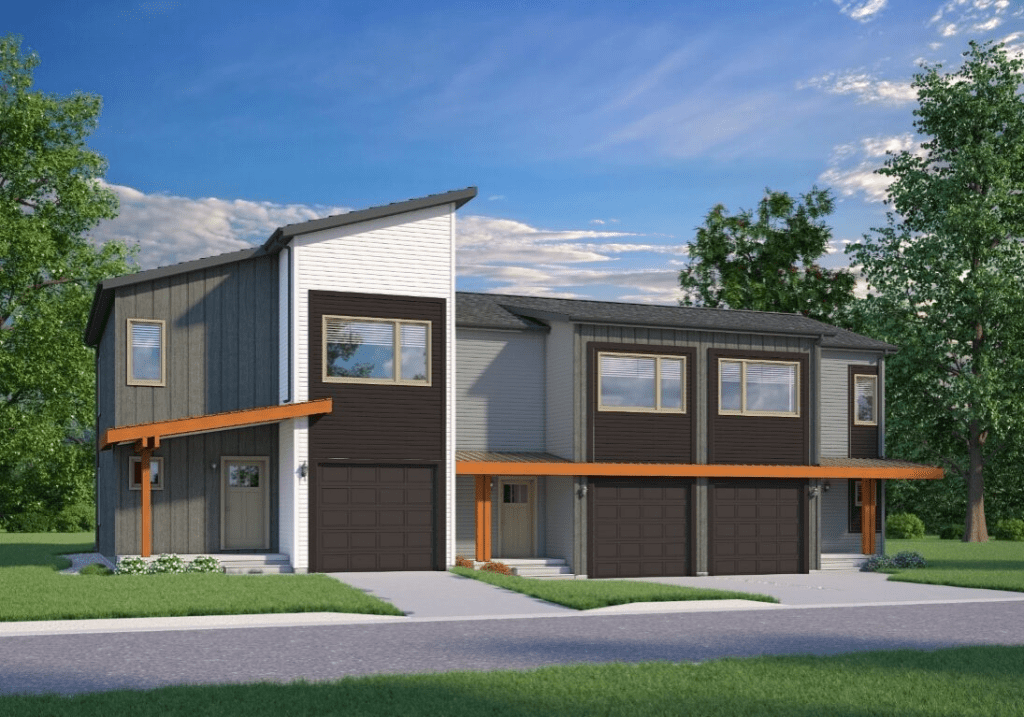
Modular Homes: Customization Options
Modular homes provide a surprising level of customization, allowing homeowners to tailor their living spaces to meet their unique needs and preferences. Here’s how modular homes can be customized:
1. Floor Plan Modifications: Modular home manufacturers offer a range of standard floor plans. These plans serve as a starting point, and homeowners can often modify them to suit their requirements. Floor plan customization might involve rearranging spaces, adjusting square footage, or adding additional rooms. Modular homes can accommodate these changes if you need an extra bedroom, a larger kitchen, or a different room layout. This flexibility ensures that your home meets your family’s lifestyle and functional needs.
2. Product and Finish Selection: Your home consists of thousands of products, from cabinetry and flooring to roofing materials and siding. Modular home builders provide standard specifications for these components but offer many upgrades and finish options. Homeowners can choose various finishes, colors, materials, and styles to personalize their homes. Modular homes provide extensive choices, whether you prefer hardwood floors, granite countertops, or a specific paint color. This customization extends to the home’s interior and exterior, allowing you to achieve the desired look and feel.
3. In-House Engineering Services: Many modular home manufacturers have in-house engineering services to assist homeowners with customizations. These services ensure that structural modifications or design changes adhere to safety standards and local building codes. Homeowners can work closely with engineers to implement their ideas while maintaining the home’s structural integrity. This collaborative approach ensures that customization is visually appealing, safe, and structurally sound.
4. Builder Collaboration: Modular home manufacturers often collaborate closely with builders who assemble and install the homes on-site. This collaboration extends to the customization process. Builders can provide valuable insights and guidance on customization options, helping homeowners make informed decisions. They may also offer suggestions for optimizing the home’s layout and functionality based on their expertise in construction and local building regulations.
Modular homes offer a high degree of customization, allowing homeowners to modify floor plans and choose from a wide range of products and finishes. With in-house engineering services and collaboration with experienced builders, homeowners can confidently create a home that reflects their preferences and lifestyle.
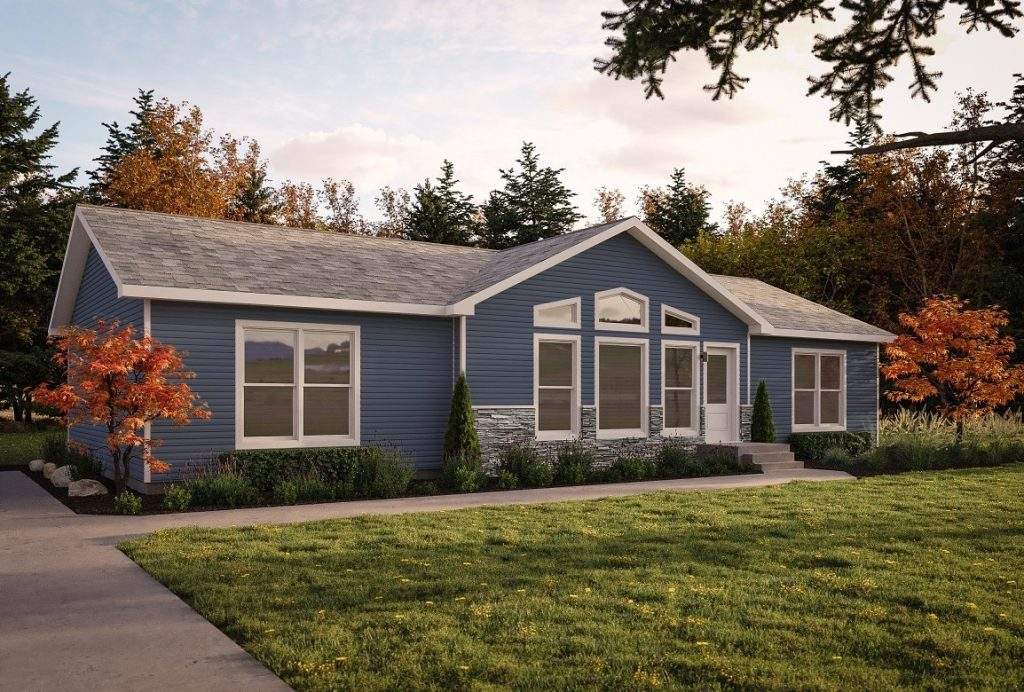
Can Modular Home Floor Plans Be Customized?
Modular homes offer a wealth of customization options, making it possible to create a living space that truly suits your needs and tastes. Here’s an in-depth look at the customization possibilities for floor plans, as well as product and finish selections:
1. Floor Plan Customization:
Adjustments: Modular home manufacturers provide a variety of standard floor plans, each with its layout and design. However, these plans are not set in stone. Homeowners have the flexibility to make adjustments to the floor plan. For instance, if you require an additional bedroom, a larger living room, or a different configuration for your kitchen, these adjustments can often be accommodated. This ensures that your home meets your specific functional needs.
Rearrangements: Beyond simple adjustments, homeowners can also rearrange spaces within the floor plan. This means you can move walls, expand or shrink rooms, or create open-concept living areas. The modular construction process allows for this flexibility, enabling you to design a seamless home that suits your lifestyle.
Square Footage Changes: Modular homes can still be customized if you need more or less space than what’s offered in a standard floor plan. Homeowners can increase or decrease the overall square footage of their homes. Whether you want to add an extra room, create a larger master suite, or downsize for a more compact living arrangement, the modular construction method allows for square footage changes.
2. Product and Finish Customization:
Materials and Finishes: Modular homes offer extensive choices regarding materials and finishes. This customization extends to both the interior and exterior of the house. Homeowners can select from various finishes, including flooring, countertops, cabinetry, roofing materials, siding options, and more. Whether you prefer hardwood or tile flooring, granite or quartz countertops, or a specific type of siding, modular homes provide the flexibility to achieve your desired aesthetic.
Color Schemes: Customization also encompasses color choices. You can choose paint colors, stain finishes, and exterior color schemes that match your style and preferences. This allows you to create a home that reflects your unique taste and complements your surroundings.
Hardware and Fixtures: From faucets and light fixtures to doorknobs and handles, modular homes allow you to select the hardware and fixtures that align with your design vision. You can choose from a wide array of styles, from traditional to contemporary, ensuring that every detail of your home reflects your desired look and feel.
Modular homes offer extensive customization options for floor plans and product finishes. Modular construction allows you to create a personalized and functional living space that suits your lifestyle and preferences, whether you require adjustments to the layout, rearrangements of spaces, changes in square footage, or specific materials and finishes.
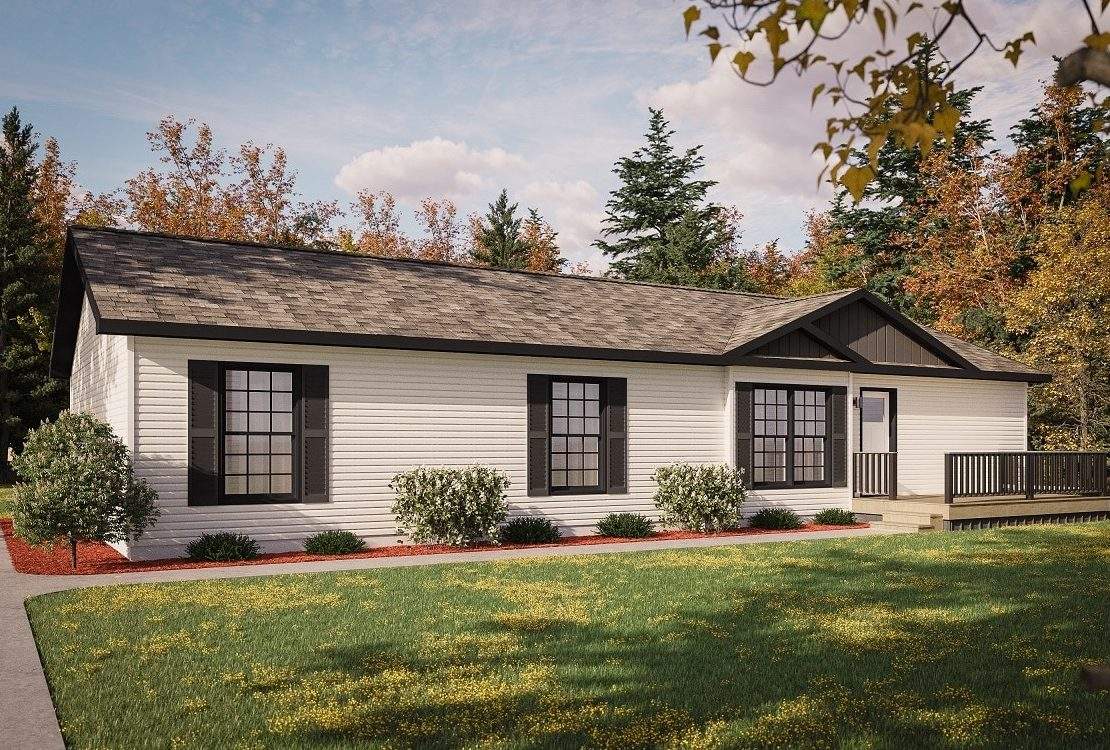
Touring a Modular Home
If you’re intrigued by modular homes and want to explore them further, there are several ways to get a firsthand look at these innovative residences. Here’s how you can tour modular homes and experience them for yourself:
1. Virtual 3D Tours:
In today’s digital age, virtual 3D tours offer an immersive and convenient way to explore modular homes from the comfort of your own space. Many modular home manufacturers and builders provide high-resolution 3D tours of their homes, using the latest technology to create an experience almost like walking through the home in real life. These tours allow you to browse various modular home models inside and outside, providing a detailed and interactive view of the layouts and designs.
By taking advantage of virtual 3D tours, you can assess the functionality, aesthetics, and flow of different modular home options without leaving your home. It’s an excellent starting point for narrowing down your preferences and identifying homes that align with your vision.
2. In-Person Visits to Builder Locations:
For a more hands-on experience and an opportunity to see modular homes up close, consider visiting builder locations that showcase their modular home models. Many modular home manufacturers have designated display centers or model homes open to the public. These model homes are fully furnished and designed to give you a tangible sense of living in a modular home.
During an in-person visit, you can walk through the modular homes, inspect the quality of craftsmanship, and interact with the interior spaces. This hands-on approach lets you assess the materials, finishes, and build quality firsthand. It’s also an excellent chance to ask questions and engage with knowledgeable staff who can provide insights and guidance.
3. Schedule a Tour:
While virtual 3D tours offer convenience, and in-person visits provide tactile experiences, nothing beats scheduling a personal tour with a modular home builder. When you schedule a tour, you can explore modular homes with the guidance of experts who can address your specific inquiries and preferences.
Builders often offer guided tours of their modular homes, where you can learn about customization options, energy-efficient features, and construction processes. It’s an ideal opportunity to have your questions answered, gather inspiration, and better understand how modular homes can meet your needs.
Whether you prefer the convenience of virtual 3D tours or the tactile experience of in-person visits, there are various ways to explore modular homes. To truly appreciate the craftsmanship and functionality of modular homes, consider scheduling a tour with a builder or visiting their display centers. These experiences will empower you to make informed decisions and embark on your journey toward owning a modular home that perfectly suits your lifestyle.
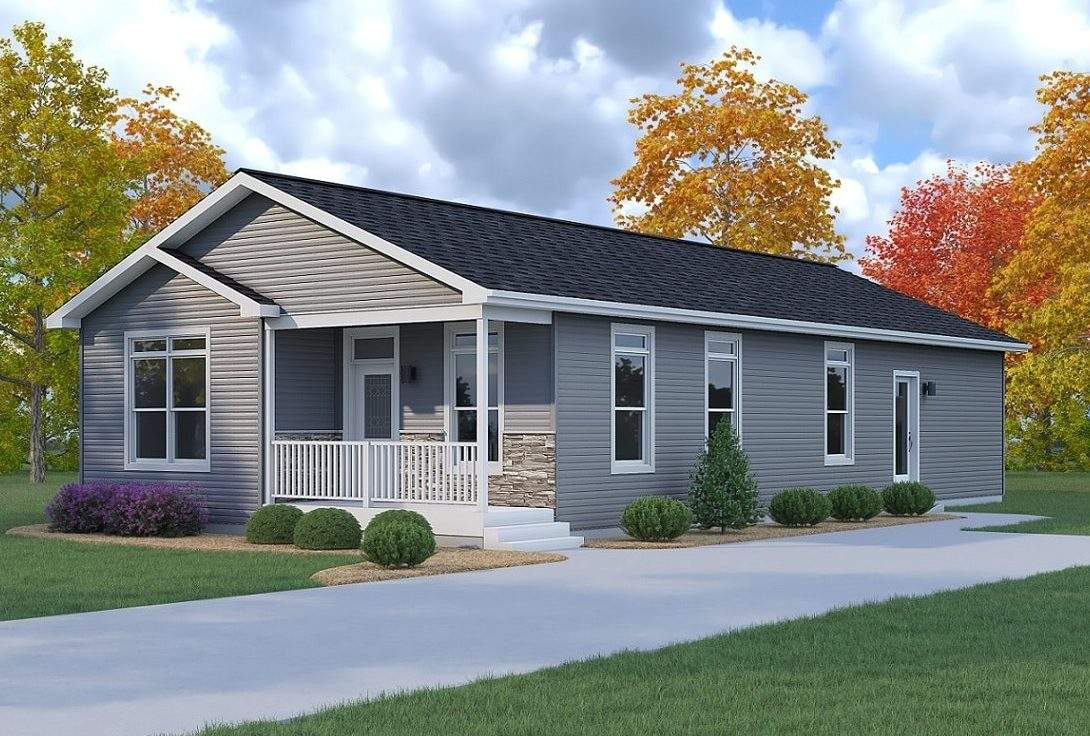
About Modular Home Manufacturer – Rochester Homes
When choosing a reputable modular home manufacturer, understanding the background and values of the company is crucial. One such manufacturer that stands out is Rochester Homes, known for its rich legacy, people-first philosophy, and commitment to quality and customer satisfaction.
Legacy and Heritage:
Rochester Homes boasts a legacy from 1972, a testament to its enduring commitment to excellence in modular home construction. The company’s founder, Milam Anderson, instilled a core “People First” philosophy into its culture, a principle that has guided Rochester Homes throughout its history.
Next Generation Leadership:
This tradition of hands-on, people-focused leadership lives on in the company’s Next Generation of leadership, helmed by individuals such as Tyler Anderson and Alex Berlin. Under their guidance, Rochester Homes upholds its core values and commitment to customer satisfaction.
People-First Philosophy:
At the heart of Rochester Homes is a people-first philosophy deeply ingrained in its Midwestern values. The company strongly emphasizes valuing its customers, putting in the hard work required to exceed expectations, and treating others how they would like to be treated. This commitment to ethical business practices and genuine customer care sets Rochester Homes apart in the modular home industry.
Commitment to Quality:
Rochester Homes is renowned for its dedication to producing top-quality modular homes. The company maintains fully staffed departments, including Administration, Sales, Purchasing, Engineering, Service, Accounting, and Production, to ensure that every aspect of the modular home-building process is meticulously managed and executed to the highest standards.
Customer Satisfaction:
One of the cornerstones of Rochester Homes’ success is its unwavering dedication to customer satisfaction. The company prioritizes open communication, transparency, and personalized service from the initial inquiry to the final walkthrough. Rochester Homes understands that a modular home is not just a structure; it’s a place where families create lasting memories and take that responsibility seriously.
Rochester Homes is not merely a modular home manufacturer but a company with a legacy of integrity, a people-first philosophy, and a commitment to delivering high-quality, customizable homes that exceed customer expectations. When you choose Rochester Homes, you’re not just buying a modular home; you’re becoming a part of a tradition of excellence and genuine care for homeowners.
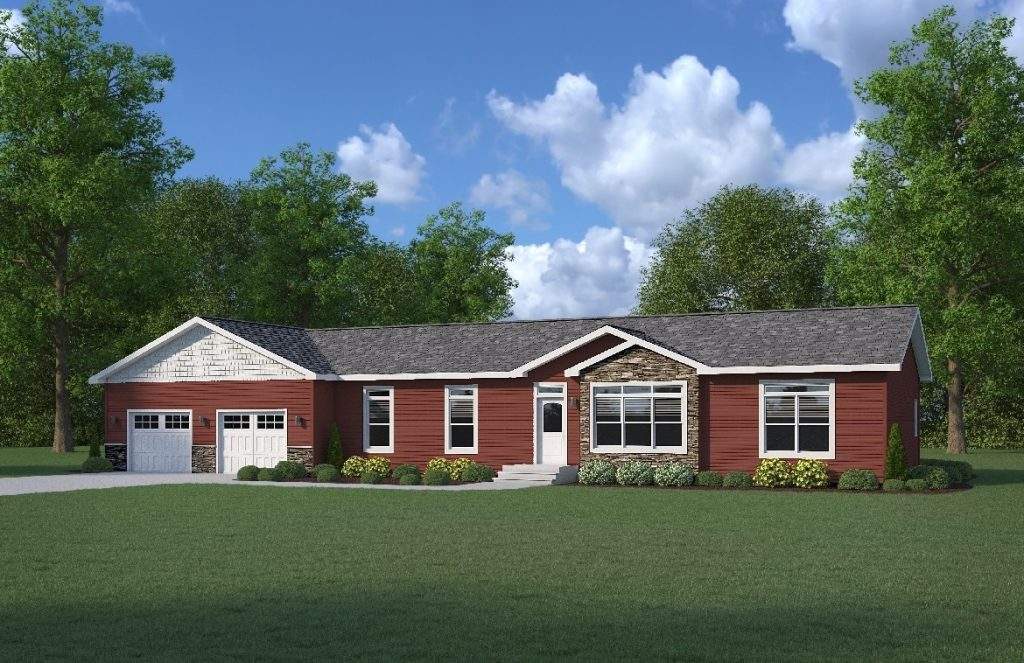
Pros and Cons of Modular Homes
Modular homes offer a range of advantages and considerations for potential homeowners. Understanding the pros and cons can help you make an informed decision when considering this housing option.
Pros:
- Energy Efficiency: Modular homes are often more energy-efficient than traditional stick-built homes. Their construction process, which takes place in a controlled factory environment, results in tighter seams and a well-insulated structure. This reduces heating and cooling costs, making modular homes environmentally friendly and cost-effective.
- Affordability: One of the most significant advantages of modular homes is their affordability. On average, building a modular home can cost between $100 to $200 per square foot, a price point that is highly competitive compared to traditional site-built homes. The cost savings extend beyond the construction phase, as modular homes typically have shorter construction timelines, reducing interim construction financing costs.
- Quick Construction: Modular homes can be built in a fraction of the time it takes for traditional site-built homes. This rapid construction timeline allows homeowners to move into their new residence faster and start enjoying it sooner. The assembly of modular homes can often be completed within a week, thanks to the precision and efficiency of factory-based construction.
- Quality Control: The factory environment in which modular homes are constructed ensures consistent quality control. Skilled craftsmen and women build each module to precise state and local building codes, with regular inspections. This results in a high-quality, durable home that meets or exceeds industry standards.
- Customization: Modular homes offer customization options to cater to individual preferences. Homebuyers can modify floor plans, adjust living spaces, select various products and finishes, and even collaborate with in-house engineering services to create their dream home. This flexibility allows homeowners to design a space that suits their unique needs and aesthetic preferences.
Cons:
- Land Zoning and Availability: One of the challenges of modular home ownership is finding suitable land that is zoned for prefab homes. In some areas, zoning restrictions may limit the placement of modular homes, making it essential to research local regulations before pursuing this housing option. However, this issue is gradually improving as modular homes gain popularity.
- Limited Floor Plan Customization: While modular homes offer customization options, they may have limitations when it comes to altering the overall structure or footprint of the home. Floor plans are often pre-designed and can be modified within those parameters. Extensive structural changes may be more challenging to accommodate.
- Resale Market Variability: Modular homes appreciate when sold in the right market, but their resale potential can vary depending on location and buyer preferences. To maximize resale value, it’s essential to consider factors such as the local real estate market and the home’s condition.
Modular homes offer numerous advantages, including energy efficiency, affordability, quick construction, quality control, and customization options. However, land zoning and availability challenges, limited floor plan customization, and resale market variability should be carefully considered. By understanding the benefits and considerations, potential homeowners can make informed decisions when choosing modular homes as their housing solution.
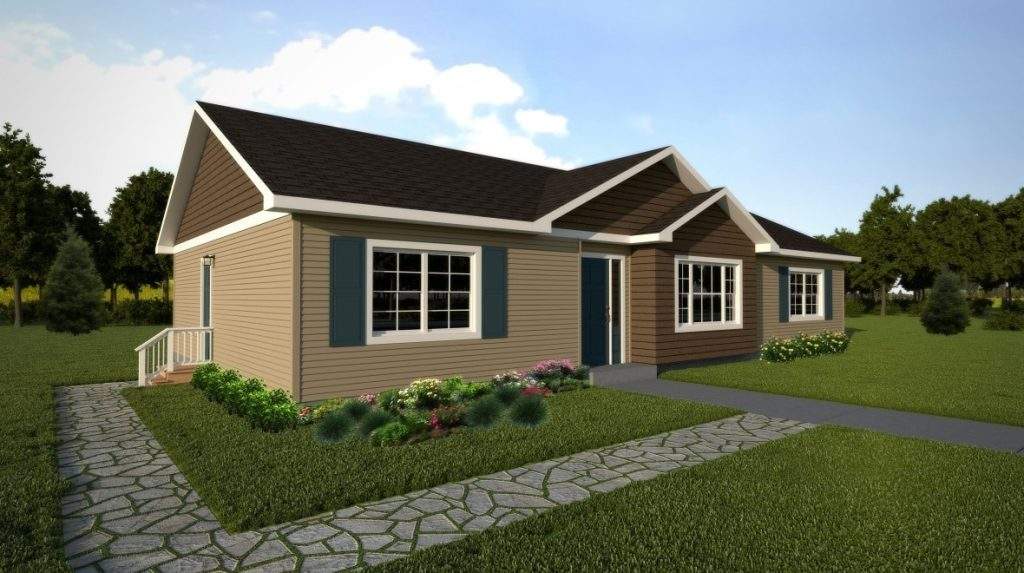
Resale Potential for Modular Homes
Modular homes have significant resale potential, making them worthwhile investments in various markets. Understanding this potential can help homeowners appreciate the long-term benefits of a modular home.
Appreciation in Value: Modular homes, like traditional stick-built homes, have the potential to appreciate over time. Modular homes’ quality construction, energy efficiency, and durability improve their long-term appeal. In markets where real estate values tend to increase, modular homeowners can see a substantial return on their investment.
Attractiveness in Senior Living Communities: Modular homes are beautiful to residents of senior living communities. These communities often prioritize affordability, energy efficiency, and low-maintenance living—all qualities that modular homes offer. As a result, modular homes are in demand in these communities, where residents seek comfortable, cost-effective housing options.
Solutions for Housing Shortages: Modular homes provide a practical solution in areas facing housing shortages or rapidly growing populations. Their shorter construction timelines and competitive pricing make them an appealing choice for first-time homebuyers and those seeking to downsize or relocate quickly. This increased demand can positively impact the resale potential of modular homes in such markets.
Finding the Right Buyer: While modular homes offer excellent resale potential, finding the right buyer is essential. It’s crucial to market the house effectively and highlight its energy-efficient features, customization options, and overall quality. Collaborating with real estate professionals who understand the unique attributes of modular homes can help ensure a successful resale process.
Modular homes have the potential to appreciate and attract buyers in various markets, including senior living communities and areas with housing shortages. Homeowners looking to sell their modular homes should focus on finding the right buyer by effectively marketing the home’s advantages and seeking guidance from experienced real estate experts.
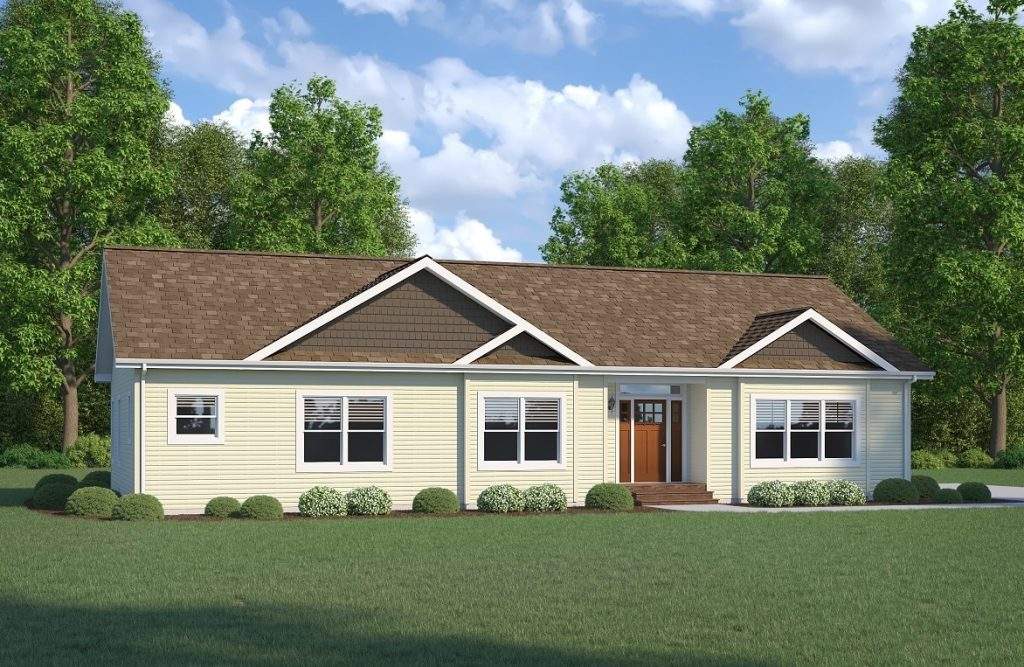
Should You Buy a Modular Home?
If you’re contemplating buying a home, modular homes offer several compelling advantages that might make them the right choice. Here’s what you need to know:
Affordability: Modular homes are known for their affordability. They typically cost between $100 to $200 per square foot, significantly lower than building a custom home. This cost-effectiveness makes modular homes attractive for first-time homebuyers looking to enter the housing market without breaking the bank.
Shorter Construction Timeline: Time is of the essence when it comes to homeownership. Unlike traditional stick-built homes, which can take up to a year to complete, modular homes can be ready in as little as three to four months. This rapid construction timeline means you can move into your new home sooner and start enjoying the benefits of homeownership.
Quality Assurance: Modular homes are built in controlled factory environments, so they are not exposed to the elements during construction. This results in tighter construction and sealed seams, making modular homes highly energy-efficient and durable. Additionally, you can inspect the materials and quality of your modular home before purchase, ensuring quality assurance.
Customization Options: While modular homes offer standardized floor plans, they are highly customizable on the interior. You can adjust, rearrange spaces, and choose from various products and finishes to create a home that suits your preferences and lifestyle.
Thorough Research: It’s essential to conduct thorough research before deciding. Explore your area’s available modular home builders, read reviews, and gather recommendations from trusted sources. Understanding your chosen builder’s reputation and track record is crucial to a successful home-buying experience.
Builder Inspection: When considering a modular home, take the time to inspect the builder’s previous projects. This will give you a firsthand look at the quality of their work and help you determine if they meet your standards. Please pay attention to the materials used, craftsmanship, and overall finish of the homes they’ve built.
Prepare for the Inspection: Just like any other home purchase, it’s advisable to have a professional inspection done before closing the deal. An inspection ensures the modular home is in excellent condition and free from potential issues. It’s a critical step in protecting your investment.
Buying a modular home can be an excellent choice, thanks to its affordability, shorter construction timeline, quality assurance, and customization options. To ensure a smooth home-buying experience, conduct thorough research, inspect the builder’s work, and be prepared for a professional inspection before finalizing your purchase.
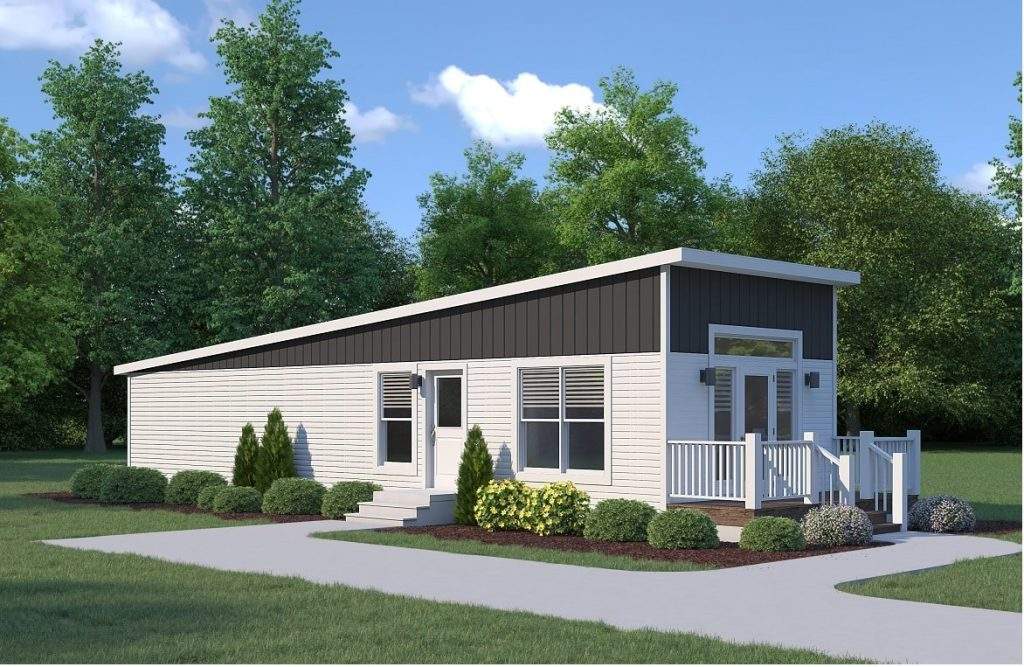
Conclusion
Modular homes represent a promising housing solution with many benefits. They offer cost-effectiveness, energy efficiency, durability, and the potential for customization, all while adhering to local building codes and regulations. Modular homes can be appreciated, making them a wise investment in the right market.
A modular home is a wise choice if you’re looking for a new home. With reduced construction time, you can move into your dream home faster and enjoy the advantages of homeownership sooner. The ability to customize floor plans and select products and finishes allows you to create a living space that perfectly suits your needs and preferences.
We encourage you to explore modular homes further through virtual 3D tours or in-person visits to builder locations. Witness the quality, craftsmanship, and energy efficiency firsthand. Finding a home that combines affordability, sustainability, and the potential for significant resale value is exciting.
Ready to experience modular living? Contact Baca Grande System Built, LLC now to turn your dream home into reality.
Contact Details: Address: 3655 Mountain View Blvd., Angel Fire, NM 87710 Mailing Address: PO Box 401585, Las Vegas, NV 89140 Phone: 702-376-7068
Start your journey to modular homeownership today!
